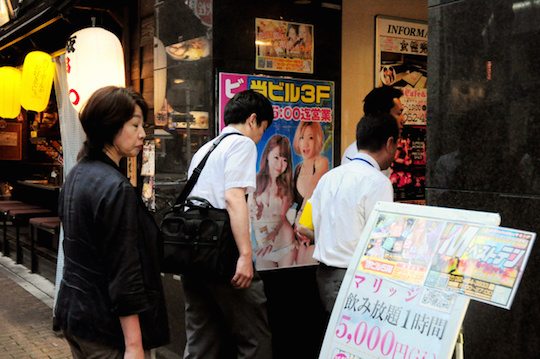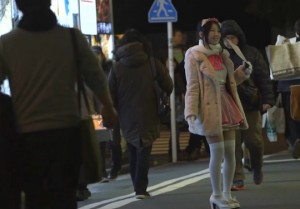Police prepare for crackdown on JK businesses in Tokyo
A panel of experts advising the National Police Agency in Japan has issued a report on so-called “JK business”, which is the name given to the various euphemistic services offering sex with schoolgirls.
Similar to the more general enjo kosai (compensated dated), there has been a lot of media and police attention on the growing JK business industry in recent years. Some of the services include osanpo (walking dates), where you pay to have a walk with a schoolgirl. It may end at a love hotel.

Other services include sleeping side by side in a “soine” cuddle cafes or getting a massage. Some maid cafes would also fall into the category of JK businesses. One memorable example was the “high school girl smell” parlor that got busted in 2014.
As of the end of January 2015, there were 174 confirmed JK business establishments in Tokyo alone. The industry started to emerge from 2006 in Akihabara as “reflexology” businesses where customers were served by schoolgirls.
In 2014, the US State Department condemned Japan for not “fully complying with the minimum standards for the elimination of [human] trafficking”. It said the government “continues to facilitate the prostitution of Japanese children”.

Based on the report, the NPA is going to consider new policies in order to tighten rules and loopholes that allow JK business to flourish.
The report says that any young girl under 18 should be stopped from working at a JK business as a tactic to combat the industry. People starting new businesses in the industry should also be made to submit a form to the Tokyo Metropolitan Public Safety Commission so that the authorities can keep track of the establishments.
The Tokyo Metropolitan Public Safety Commission should be able to ban businesses from operating and also proscribe punishments for businesses that breach the rules, the report suggests.
Between 2012 and 2015, 31 businesses and 54 people were found to be in breach of child welfare laws, labor laws, and the Entertainment and Amusement Trades Control Act (which covers the sex industry) through making female high schoolers offer sexual services.














